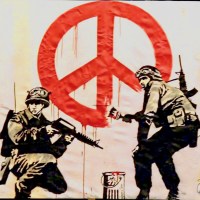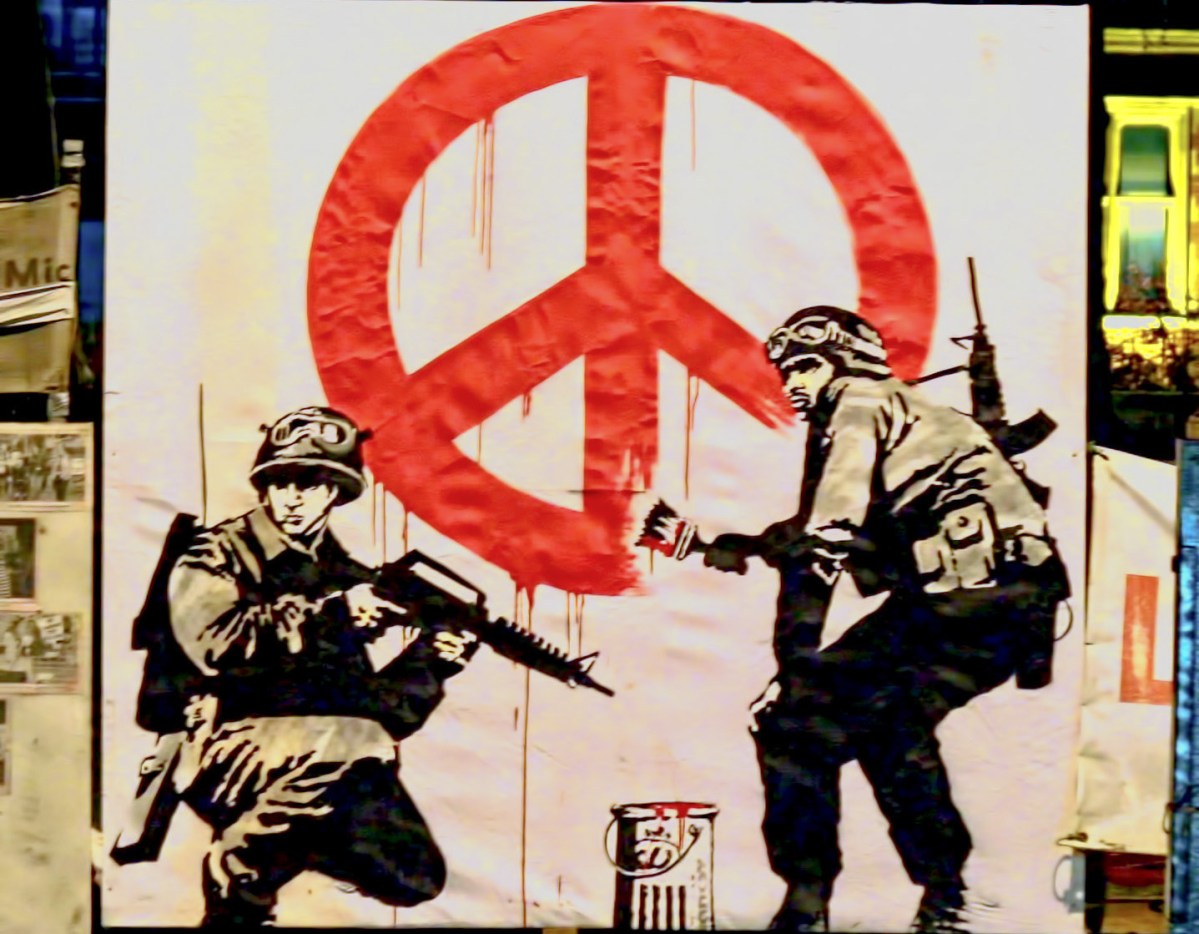“Peace is patriotic,” she said as her eyes locked on mine with an intensity I didn’t expect.
Her age and her whitened hair couldn’t mask the strength in her voice. She believes in something I don’t see often enough. Peace.
This is what brought her to a Grandmothers for Peace gathering on a Sunday afternoon. As a former combat soldier, I had been invited to speak.
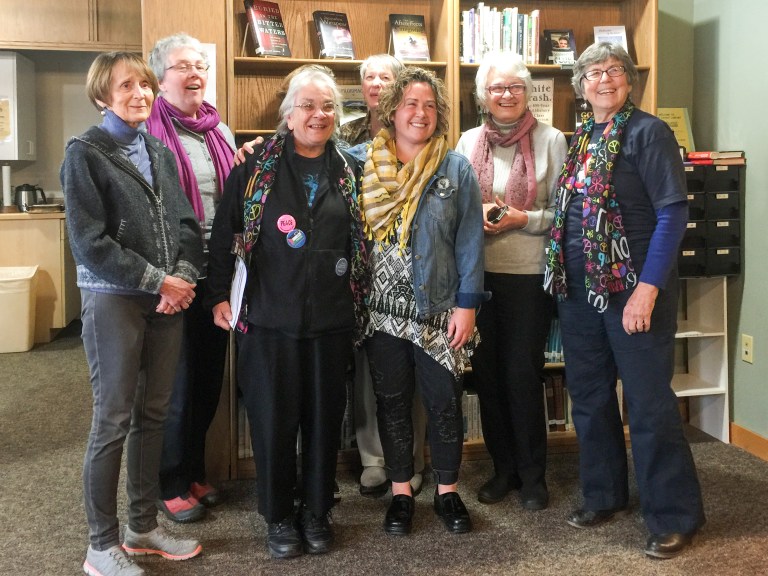
This group isn’t just for grandmas… or women. I met a few women who announced with a twinkle in their eyes that they weren’t “real” grandmas. One young woman told me she’d been an honorary Grandmother for Peace since she was 18. She traveled to Iraq almost 20 years ago, part of a delegation seeking to build relationships and sow peace instead of suspicion.
These grandmothers, real and honorary, are holding space for hard conversations, listening to people who don’t think peace is possible or worth the effort. They are holding space for me. Or at least the younger me who couldn’t hear what they were saying.
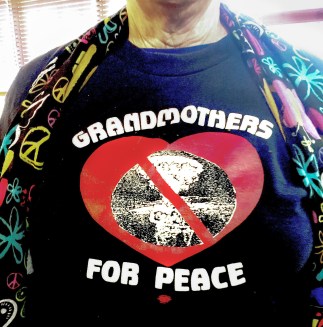
They graciously laughed when I mentioned how, growing up, I made fun of the car with the “Make Peace, Not War” bumper sticker while cheering the car with a “Freedom Isn’t Free” sticker. To my younger self, peacemakers were naive hippies who didn’t understand the sacrifice it takes to tackle conflict head-on.
They know something I didn’t know back then.
They know you can love your country without putting it above everyone and everything else.
They know you can serve your country as a soldier and refuse to take a life.
They know you can be patriotic by working hard for peace.
There was a conscientious objector at the gathering who shared his story of being drafted for the Vietnam War, and how he had pleaded his case in front of a review board. He was grateful to be granted permission to serve without having to kill, because the sanctity of life is one of the essential teachings of his Brethren faith tradition.
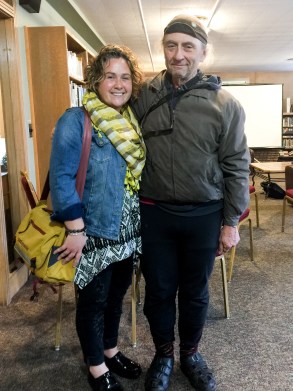
Another veteran in the room shared his story of serving as a combat medic in Vietnam. He was gravely injured on patrol and served his last six months in an intensive care unit. We smiled knowingly at one another. Two different generations of combat medics, having served in two separate wars—him in Vietnam, me in Iraq.
We were connected by the medic bag and by memories we both carried on our backs. I looked down at the floor after he spoke, trying to stop images of the carnage and pain he had witnessed in that intensive care unit in Vietnam.
That afternoon, stories of violence and hope were shared around the room. Why did they ask me, a combat soldier, to come speak to them?
Because you can’t talk about war without talking about peace.
Soldiers don’t go to war because they think war will make more war. They go to war because they believe it will bring peace. And that it’s worth their sacrifice.
What are you sacrificing for peace?
Whether you believe war is a sometimes necessary path to peace or that you must renounce violence in order to build lasting peace—we all have work to do. Veterans deserve more than a “thank you for your service.” They deserve committed action and solidarity.
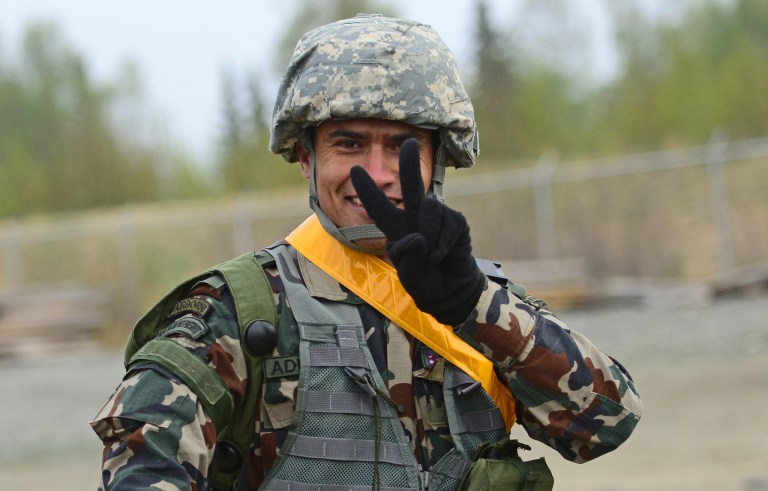
The responsibility for war lies at the feet of the 99% of Americans who don’t serve, while the burden of our collective choices lies squarely on our soldiers—for life.
So how do we honor soldiers on Veterans Day?
We work for peace like their lives depend on it.
Veterans need access to healthcare. They need less red tape so they can access the benefits they earned for their service. They need to be with their families. They need an end to never-ending deployments without clear objectives and exit plans. 
Instead of just displaying an American flag on Veteran’s Day or thanking a veteran for their service, you can do something practical to support the veterans in your community:
- Speak out and speak up on behalf of veterans and their needs, including health care.
- Volunteer your time at a veteran’s home, just to build relationships.
- Donate to local organizations that are helping veterans.
- Talk about peace as often as you talk about war.
The wounds of war are not mended in a moment. Neither are soldiers. You believe we can unmake violence by showing up in places like Iraq and Syria. Let’s show up on our own frontlines too this Veterans Day—and fight for peace like lives depend on it.
How are you serving veterans today?

